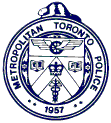- e.
The Force agrees in part. The Boards' resolution 11 explains why the Sexual Assault Squad is included in the list of above units. The Force disagrees with the Sexual Assault Squad investigating internal matters of discipline or criminality. The Force's response to resolution 11 goes into greater depth on this matter.
The Force agrees with ensuring the optimum flow of information between all units involved in internal investigations of officers. The Professional Standards Unit and the Office of the Deputy Chief of Support Command monitor ongoing investigations to ensure there is no duplication of efforts. To ensure an optimum flow of information will require the appropriate technology, and currently attempts are being made to provide a computer network for Internal Affairs, the Public Complaints Investigation Bureau, the Trial Preparation Bureau, the Professional Standards Unit and the office of the Deputy Chief of Support Command. Such a computer network would allow greater flow of information between all the involved units.
The OCCPS Report recommendation 15 mentions mechanisms to ensure the optimum flow of information between these units. The Report also comments on the suggestion of having a central clearing house within the Force to deal with the assignment of investigations involving allegations against officers.
With regards to public complaints, section 81 and 82 of the Police Service Act places the responsibility for such decisions relating to the assignment of investigations with "the person in charge" of the Complaints Bureau. There are no provisions in the Act for removing this responsibility, nor for converting or changing it. As a result, in order for this Force to comply with the legislation, all public complaints must go through the Unit Commander of the Public Complaints Investigation Bureau (PCIB). Other investigations, that are not public complaints, are dealt with by the Internal Affairs Unit, or at the field unit level. The more serious of these are monitored by Internal Affairs and subsequently reviewed by the PSRC. Less serious discipline matters are dealt with by the Unit Commander pursuant to section 59 of the Police Services Act (Informal Discipline).
The PSRC has recommended an internal discipline procedure (see Board letter 1992.09.23, Six Month Report of Professional Standards Review Committee, Appendix E) that will provide a review mechanism for discipline dispensed at the Unit level by the Unit Commander.
The Unit Commander of the PCIB may decide that certain complaints require intensive investigation, such as electronic surveillance, undercover investigators or mobile visual surveillance, while maintaining confidentiality to protect the integrity of the investigation. The Unit Commander of the PCIB, in consultation with the Unit Commander of Internal Affairs, the superintendent of Professional Standards and the Deputy Chief of Support Command, will delegate Internal Affairs to conduct such investigations, and report the results back to the Unit Commander of the PCIB so that the further requirements of the Police Services Act are fulfilled. Criminal or disciplinary charges may be laid, but in either case the investigation must be brought before the Professional Standards Review Committee. In all cases, however, the Deputy Chief of support Command will adjudicate the matter and report to the complainant and the Public Complaints Commissioner (PCC) on the outcome.
In these instances the Unit Commander of the PCIB may invoke Section 79(1) of the Police Services Act which permits the investigation to proceed without notifying the involved officer or issuing interim reports. In such cases the Office of the PCC is notified of wht action is taken, that Internal Affairs is investigating the incident, and that a final report will be forwarded to the PCC office upon completion of the investigation.
-
The Force will endeavour to ensure the confidentiality of the complainant to the full extent provided by law, when such requests are made.
A more difficult issue is where anonymity is requested by an informant who does not wish to be identified to the police officer. There is no provisions within the Police Services Act for this category of public complaint, and Police Forces stand to lose important information of deviant officers if this situation is permitted to continue.
It must be addressed in some form. Changes made to the current legislation to allow for a signed waiver, such as the one advocated in recommendation #14 of the OCCPS Report, may be the avenue that needs to be explored in order to remedy this problem.

![[Junger Clippings]](clipblk.gif)
![[Junger Inquiry]](inquirybut.gif)
![[Gov. Reports]](govblk.gif)
